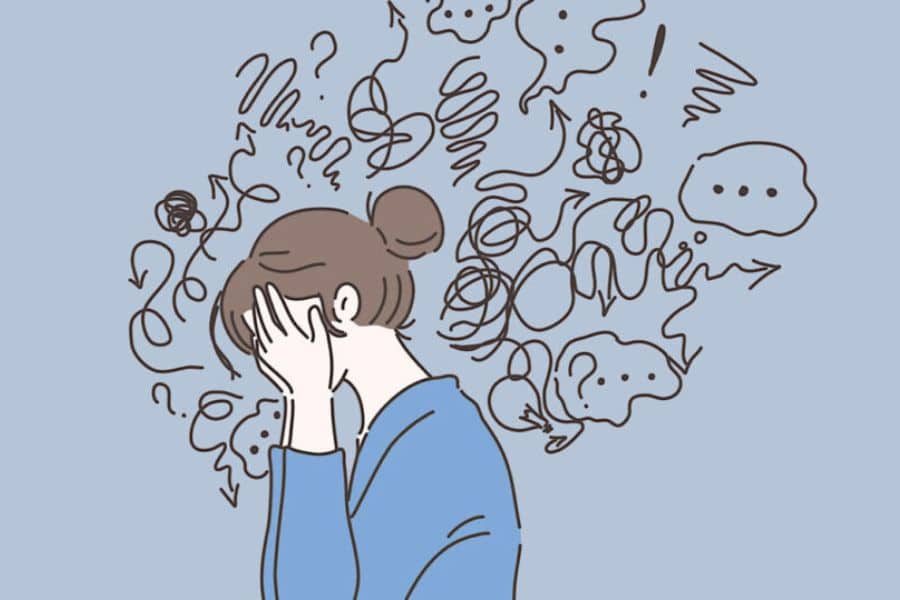Understanding Anxiety Medications
Facing anxiety? Grasping the different meds out there is key to finding some peace of mind. Let’s break down what’s on the market and what to expect from each option.
Types of Anxiety Medications
Here’s the scoop on common meds that doctors dish out to help tackle anxiety. They work in their own quirky ways and are often picked based on what your body’s been through before.
- Benzos (Benzodiazepines): Quick-fix sedatives for when your nerves are sky-high. They calm things down fast but can be a bit clingy, so no long-term romance here (Healthline).
- SSRIs (Selective Serotonin Reuptake Inhibitors): Kind of like the everyday warriors for long stretch battles with anxiety. They boost those feel-good vibes in your noggin.
- SNRIs (Serotonin-Norepinephrine Reuptake Inhibitors): They’re the double agents, working on serotonin and norepinephrine, which helps when anxiety sticks around.
- TCAs (Tricyclic Antidepressants): Old-school options; they come with more baggage (side effects) than SSRIs and SNRIs, but they get the job done for some folks.
- Beta Blockers: These are heart helpers that also happen to chill out physical freakouts like a racing heart.
For the full 411 on prescription drugs for anxiety, check out our detailed guide.
Efficacy and Duration of Treatment
Knowing how well anxiety meds work and how long you might need them is key for keeping your mind in check.
- Getting Started: Medications like SSRIs and SNRIs usually take a few weeks to show their magic. Hang tight, stay in touch with your doc, and ride it out!
- How Long to Stick With It: For newbies, it’s often wise to hang with your meds for about a year or two after feeling like yourself again (ABC News). Here’s a handy chart:
| Medication Type | Onset of Effects | Recommended Duration |
|---|---|---|
| Benzos | Immediate to a few days | Short-term (weeks to months) |
| SSRIs | 4-6 weeks | 1-2 years |
| SNRIs | 4-6 weeks | 1-2 years |
| TCAs | 4-6 weeks | Varies by person |
| Beta Blockers | Immediate to a few hours | As needed |
- Keeping on Track: If anxiety returns, you might need to stay on meds for years to keep it at bay. Always chat with your healthcare pro before switching things up.
To explore pairing meds with cognitive behavioral therapy for anxiety, or checking out alternative treatments for anxiety like natural remedies for anxiety, dive into our resources.
Knowing your choices helps you ace the game of life with a clear mind and a lighter heart.
Benzodiazepines for Anxiety
Benzos, as they’re usually called, are those meds you hear about when you need quick anxiety relief. They’re super fast at calming you down, but hold on—they also come with some serious baggage.
Usage and Risks
Docs hand out benzos for short-term anxiety fixes or to help with panic attacks. They do their thing by boosting a brain chemical, GABA, which is fancy talk for calming the brain’s hyperactivity. They’re known for taking the edge off your anxiety super quick—in about half an hour or so.
You might recognize some of these names:
- Alprazolam (Xanax)
- Diazepam (Valium)
- Lorazepam (Ativan)
But here’s the kicker: While they work fast, they’re not the first go-to for ongoing anxiety. Why? They’re addictive. Stick with them longer than a few weeks, and you could get hooked. Plus, mixing them with booze or other drugs? Big no-no.
| Medication | On Take-off | Lasts For |
|---|---|---|
| Alprazolam (Xanax) | 30-60 mins | 4-6 hours |
| Diazepam (Valium) | 30-60 mins | 20-50 hours |
| Lorazepam (Ativan) | 1-2 hours | 10-20 hours |
Withdrawal and Dependence
Getting off benzos can be rough. Your body can crave them after just weeks, making quitting a challenge. You might get more anxious, find it hard to sleep, feel edgy, or worse, have seizures.
The trick? Follow your doc’s orders to the letter, and if you’re coming off them, do it slowly to avoid those withdrawal yucks.
Thinking about adding benzos to your anxiety toolbox? Know your stuff first. Pairing meds with things like cognitive behavioral therapy for anxiety and chill-out techniques can do wonders.
Curious about staying away from heavy meds? Check out alternative treatments for anxiety and natural remedies that might just ease your anxiety without the extra drama.
SSRIs and SNRIs for Anxiety
So, you’ve got anxiety, huh? It’s not the end of the world. In fact, there are meds that can lend a hand, namely SSRIs (Selective Serotonin Reuptake Inhibitors) and SNRIs (Serotonin-Norepinephrine Reuptake Inhibitors). These guys are often the first choice doctors have up their sleeves when tackling those pesky anxiety issues. Let’s shed some light on how they function and what you can expect as they start to work their magic.
How They Work
Think of SSRIs and SNRIs as your brain’s cheerleaders, rallying troops to keep your mood in check. They mess with neurotransmitters, primarily serotonin and norepinephrine, to help your brain chill out a bit.
-
SSRIs: Here’s the skinny: they stop your brain from vacuuming up all its serotonin, leaving more of it floating around to do its thing. This helps stabilize mood swings and keeps anxiety at bay. Common names you’ll hear are fluoxetine, citalopram, and escitalopram, the regulars of the SSRI scene.
-
SNRIs: These are like SSRIs with a little extra oomph. Besides boosting serotonin, they also give norepinephrine a nudge. Venlafaxine and duloxetine are the heavy hitters here, especially handy if SSRIs alone aren’t cutting it.
| Type | Med Names | What They Do |
|---|---|---|
| SSRIs | Fluoxetine, Citalopram, Escitalopram | Pump up serotonin |
| SNRIs | Venlafaxine, Duloxetine | Boost serotonin & norepinephrine |
When to Expect a Difference
Waiting for these meds to kick in is like waiting for a slow-cooker recipe to finish. They need time. No fireworks right out of the gate—more like a gradual build-up to finally feeling some relief.
-
Quick Feels: You might notice a sense of calm, maybe some drowsiness, or a slower heart rate within a few hours. Don’t be fooled, though; these are just your body saying “what’s this, now?”
-
The Big Shift: Really feeling better might take anywhere from 2 to 6 weeks. Keep your eye on the prize and stick with it as prescribed. Keep in touch with your doc, too, ‘cause they might change the dose if needed. Quitting early could put you back at square one—no one wants that.
For those looking for extra support, considering cognitive behavioral therapy for anxiety, alternative treatments for anxiety, or relaxation techniques for anxiety can be game-changers.
On top of the meds, shaking up your lifestyle with things like exercise, meditation, and natural remedies can do wonders for your headspace.
Tricyclic Antidepressants for Anxiety
Function and Benefits
Got the jitters? Tricyclic antidepressants (TCAs) might just be what you need. These meds are a go-to for tackling anxiety and other pesky mental health issues. They step in by nudging up the levels of serotonin and norepinephrine—those mood-lifting brain chemicals (Port St. Lucie Hospital).
Examples of TCAs for Anxiety:
| TCA | Common Uses |
|---|---|
| Amitriptyline | Anxiety, Depression |
| Imipramine | Anxiety, Panic Disorders |
| Desipramine | Anxiety, Depression |
Basically, they help keep these neurotransmitters hanging around in your noggin a bit longer, smoothing out those anxiety wrinkles (Medical News Today). TCAs often hit the scene when the new kids like SSRIs and SNRIs just don’t cut it.
Side Effects and Considerations
Sure, TCAs bring some relief, but like an old friend, they can sometimes overstay their welcome with a few side effects. Before jumping on the TCA train, chat up your doc about the good, the bad, and the not-so-pretty. Here’s a quick peek at the side effects:
- Nausea
- Headaches
- Chowing down or skipping meals
- Feeling sleepy
- Cottonmouth
Some of these might fade into the background after a few weeks, but others might hang on for the ride. And, you bet, they can mix it up badly with other meds (healthdirect).
Risk of Side Effects:
| Side Effect | Frequency |
|---|---|
| Drowsiness | Common |
| Dry mouth | Common |
| Weight gain | Sometimes |
| Blurred vision | Sometimes |
| Urinary hold-ups | Rare |
Thinking of bringing TCAs into your life? You could mix things up a bit with stuff like cognitive behavioral therapy for anxiety or give natural remedies for anxiety a whirl, even alternative treatments for anxiety.
Stay in the know about anxiety medication side effects, and definitely get some face-time with healthcare folks. Pairing meds with a lifestyle tune-up, like exercise for anxiety, might just be the ticket to feeling better.
Integrating Medication with Therapy
When it comes to tackling anxiety, a mix of meds and therapy can really make a difference. It’s not just about popping pills—it’s about creating a whole strategy to help get life back on track.
Cognitive Behavioral Therapy (CBT)
Think of Cognitive Behavioral Therapy (CBT) as a mental workout that’s got some serious street cred in anxiety treatment. It’s all about kicking those pesky negative thoughts and actions that fuel anxiety to the curb. Teaming CBT with medication can give your treatment that extra oomph.
In CBT, you’re not going it alone. Regular meet-ups with a therapist help spot and stop irrational thoughts dead in their tracks. The end game? Swap those anxiety-inducing ideas with much saner ones. Over time, you’ll find yourself sweating the small stuff a whole lot less, armed with clever ways to keep calm and carry on.
| What CBT Does for You | How It Works |
|---|---|
| Spots negative thoughts | Tracks down thoughts that drive anxiety |
| Crafts survival tools | Arms you with ways to deal with stress and anxiety |
| Promotes feel-good actions | Boosts behaviors that keep anxiety in check |
Want more on how CBT can kick anxiety to the curb? Check out our breakdown on cognitive behavioral therapy for anxiety.
Complementary Approaches
Besides pills and CBT, a bunch of extra strategies can slide into your anti-anxiety playbook. You can roll solo with these options or tag them onto your usual routine to keep symptoms at bay.
- Mindfulness and Meditation:
- Give your brain a break with mindfulness and meditation. By living right here, right now, you can slash through stress like a zen ninja. Our meditation for anxiety guide’s got the how-tos.
- Exercise:
- Get moving. Whether it’s jogging, hiking, or hitting the pool, sweating it out can knock anxiety levels down a peg. Seriously—sometimes exercise works as well as medication.
- Dietary Supplements:
- Pop some vitamins and herbs into your diet for an anxiety-busting boost. Stuff like Magnesium, Vitamin B, and Omega-3 can have a chill-out effect. Want the scoop? Read up on vitamins for anxiety and herbal supplements for anxiety.
- Relaxation Techniques:
- Chill out with yoga, deep breathing, and muscle relaxation to ease anxiety. Dive into our list of relaxation techniques for anxiety.
- Alternative Treatments:
- Been sneaking peeks at acupuncture or aromatherapy? Give ‘em a try; they might just tick the right boxes for anxiety relief. Discover more over in alternative treatments for anxiety.
Mixing medication with therapy and these extra tricks can help you whip up an anxiety-busting plan that’s all you. Just be sure to have a chinwag with a healthcare pro before diving in, to make sure everything’s kosher.
Lifestyle Modifications for Anxiety
Pop a pill if you must, but tweaking your lifestyle can give your mental well-being a serious boost. Here’s where to start:
Exercise for Anxiety
Who would’ve thought breaking a sweat could chill you out? Regular exercise, like jogging, strolling, or taking a dip, works wonders on those anxious vibes (Covenant Family Solutions). In fact, a 2022 BMJ study said working out can zap depression just as well as meds for some folks.
Exercise not only releases endorphins that lift your spirits but also dials down those pesky stress hormones. You might even sleep like a baby afterward, which is a win for anxiety. Check out how different workouts stack up for kicking anxiety to the curb:
| Type of Exercise | Anxiety Buster Rating |
|---|---|
| Running | Excellent |
| Walking | Good |
| Swimming | Stellar |
| Yoga | Fantastic |
| Strength Training | Decent |
Got the jitters about anxiety? Dig deeper into natural remedies for anxiety or alternative treatments for anxiety right here.
Mindfulness and Stress Management
Channeling your inner Zen through mindfulness can give anxiety a swift kick. Meditating and other mindfulness practices let you acknowledge your thoughts and feelings without getting bogged down by them. You’ll find yourself relaxed, less stressed, and mentally perkier (Covenant Family Solutions).
Try these stress-busting techniques:
- Deep Breaths
- Muscle Tense-and-Release
- Visual Daydreaming
- Hobbying-it-Up
- Mindful Chillin’
Programs like Mindfulness-Based Stress Reduction (MBSR) show decent success in dialing back anxiety symptoms (NCBI). Want to get your zen on? Peek at our guide on meditation for anxiety.
Blending these lifestyle tweaks with your anxiety meds can make anxiety back down. Crave more chill tips? Our piece on relaxation techniques for anxiety has got you covered.










